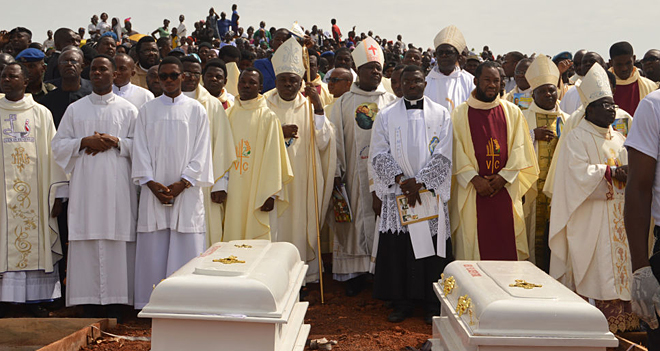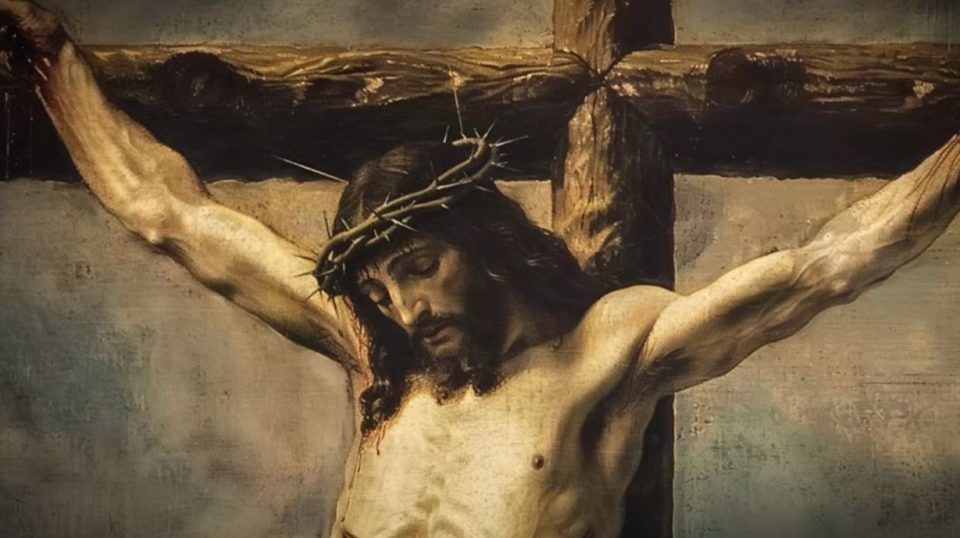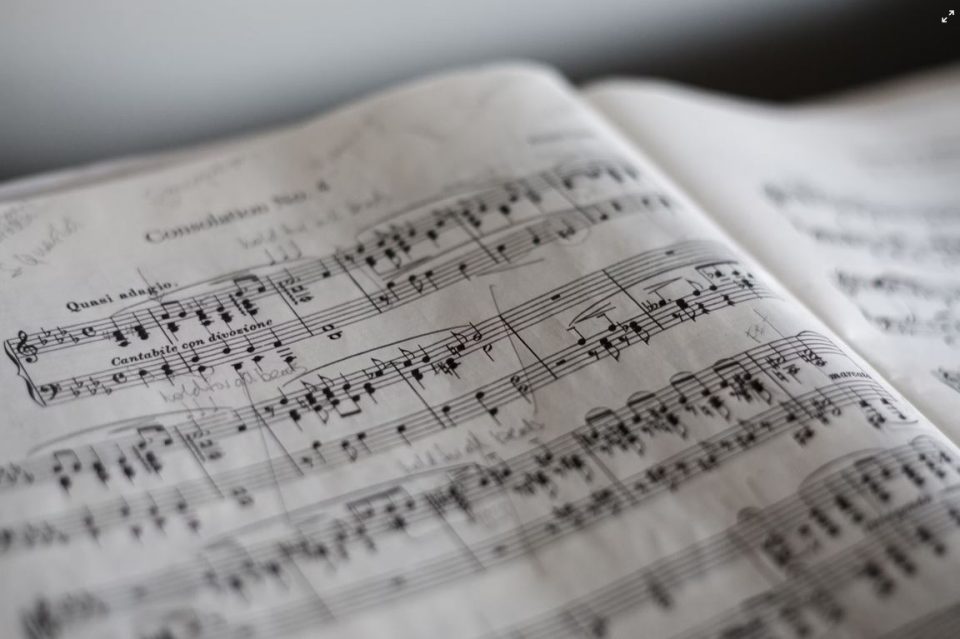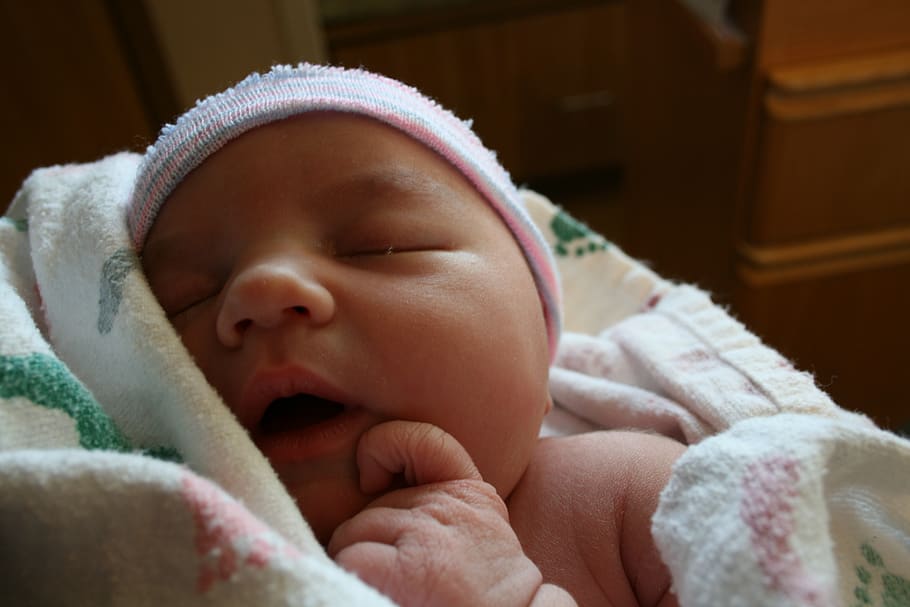Ambassador Nikki Haley Defends Decision to Leave Pro-Abortion UN Human Rights Council
July 19, 2018Msgr. Charles Pope: A Brief Reflection on Mortal Sin
July 19, 2018
By William Kilpatrick, Crisis Magazine, July 19, 2018
Despite its patent absurdity, the meme that terror has nothing to do with Islam never seems to die. A reminder of its tenacity comes from Northern Nigeria where assaults on Christians by Muslims are routinely referred to by government, media, and the “international community” as “clashes.” “Over 2000 Nigerians killed in Farmers-Herdsmen clashes.” That typical headline is a reference to the frequent attacks by Fulani Herders (Muslims) on Christian farmers. The story doesn’t tell us how many of those 2,000 dead were Christians, but it’s a good bet that most of them were. The herdsmen almost always initiate the “clashes,” and the AK-47s they carry make quick work of any resistance they may encounter. The attackers rape women, butcher children, and burn down churches and villages. It’s estimated that 6,000 Christians, “mostly children, women, and the aged,” have been killed in the first six months of 2018.
If you weren’t told otherwise, you might be inclined to think of these incidents as examples of Islamic terrorism. But the media and the authorities assure us that these are only “clashes,” and that word suggests that both sides are equally at fault. Moreover, the authorities like to remind us that the “clashes” simply reflect the age-old tensions that have always existed between farmers and herdsmen.
Well, that’s plausible. Even the U.S. has a history of “range wars.” Indeed, Farmers versus Cattlemen was a common theme of the old Western films. The cattlemen needed grazing land for their herds, but the farmers kept putting up fences to keep the cattle out. And, because you need conflict in movies, clashes soon ensued.
As with the situation in Nigeria, the movie clashes were often one-sided affairs, with the cattlemen having the upper hand against the isolated and more peaceful farmers. Very often, the farmers had to call in a “gunfighter” to help out because the local sheriffs were often in cahoots with the cattlemen.
The supposedly “natural” rivalry between farmer and herdsmen is even touched on in a musical. One of the memorable songs from Oklahoma begins with the words “Oh, the farmer and the cowman should be friends,” and goes on to encourage the two groups to learn to “stick together.”
So when you think about the clashes in Nigeria, don’t think about Muslim marauders shouting “Allahu Akbar,” think Shane and Oklahoma. At least, that seems to be the way that the international community and the international media would like you to see it. By framing the “clashes” as nothing more than an age-old conflict over grazing rights, the religious motivation of the Fulani herders is cut out of the picture. As a result, what some are calling a genocide against Christians is reduced to the level of a familiar movie plot.
The misdirection doesn’t stop there. Another common strategy for taking the focus off Islam is to blame the clashes on the environment. During the UN Conference on Climate Change in Paris, the Obama administration’s Deputy National Security Advisor Ben Rhodes said:
The instability that we see in parts of Africa and the Middle East … can be magnified by the effects of climate change and extreme drought…
Not surprisingly, the same logic is being applied to the farmer-herdsman “clashes” in Nigeria. Thus, according to the Australian Sunday Morning Herald:
The encroaching Sahara Desert has pushed Bello, a 29-year-old Muslim, about 500 kilometers south from his home town in Shinkafi in search of pasture, and into conflict with communities that see grazing cattle as a threat to their crops.
In short, why blame the sharia when you can blame the Sahara? Why put the onus on Islam, when you can shift it onto the ever-shifting desert sands?
So, you can blame the slaughter of Christians in Nigeria on the traditional rivalry between farmers and cowmen. Or, if that’s not to your liking, blame it on the weather. In any event, keep it firmly in mind that the terror has nothing to do with Islam. As Obama’s Assistant Secretary of State for African Affairs, Johnnie Carson, said after an Easter Day bombing of a Nigerian Church in 2012, “I want to take this opportunity to stress one key point and that is that religion is not driving extremist violence.” A Church is bombed? Thirty-nine worshipers are killed? On Easter Sunday? And it has nothing to do with religion?
Fortunately, Christians in Nigeria are no longer buying these explanations. The Christian Association of Nigeria (CAN), an umbrella group of Christian denominations, put it this way in a recent statement:
How can it be a clash when one group [Muslims] is persistently attacking, killing, maiming, [and] destroying, and the other group [Christians] is persistently being killed, maimed and their places of worship destroyed? How can it be a clash when the herdsmen are hunting farmers in their own villages/communities and farmers are running for their lives?”
The National Christian Elders Forum—a wing of CAN—goes even further in placing the blame:
It is clear to the Christian Elders that JIHAD has been launched in Nigeria by the Islamists of northern Nigeria led by the Fulani ethnic group [the “herdsmen”].This jihad is based on the Doctrine of Hate taught in Mosques and Islamic Madrasas in northern Nigeria as well as the supremacist ideology of the Fulani.
Undoubtedly, the Elders are concerned with the spread of the Sahara, but they seem quite a bit more concerned with the spread of jihad. Moreover, they are savvy enough to warn about two types of jihad: “both conventional (violent) Jihad, and stealth (civilizational) Jihad.” The CAN elders are also worried about the spread of sharia: “the Islamists of northern Nigeria seem determined to turn Nigeria into an Islamic Sultanate and replace Liberal Democracy with Sharia as the National Ideology.”
Christian leaders are not just blaming the Fulani, however; they are also blaming the government for inaction and for possible complicity. In a statement, issued after the massacre of more than 200 Christians, the Nigerian Bishops renewed their request that President Muhammad Buhari resign if he proves unable to ensure the safety of all. They added:
It can no longer be regarded as a mere coincidence that the suspected perpetrators of these heinous crimes are of the same religion as all those who control the security apparatus of our country, including the President himself.
The bishops continue:
Words are no longer enough for the President and his service chiefs to convince the rest of the citizens that these killings are not part of a larger religious project.
If you’ve been following the general reaction of Western bishops to Islamic terror, you’ll notice that this is an extraordinary statement. Typically, bishops maintain that terrorist acts have nothing to do with Islam, that terrorists are a tiny minority who don’t represent “authentic” Islam, and so forth. The Nigerian bishops, by contrast, have seen “the killing fields and mass graveyard that our country has become,” and are no longer willing to play word games.
Clearly, they realize that the problem lies not only with a tiny minority, but also with larger forces—possibly the government of Nigeria, and beyond that a widespread aggressive religious ideology that spans the globe.
The ongoing genocide against Christians in Nigeria is frightening. At the same time, the reaction of Nigerian Christians is both refreshing and encouraging. The Nigerian bishops are adopting a much more skeptical, much less trusting attitude toward Islam than their Western colleagues.
In short, they are becoming more realistic. For example, the CAN statement is the first instance I know of in which an official Catholic Organization (the Catholic Secretariat of Nigeria is one of the largest groups within CAN) has acknowledged the existence of stealth jihad. And both CAN and the Catholic bishops seem to recognize that stealth jihad often takes advantage of the political process. Prior to his election, President Buhari presented himself as a moderate Muslim who would convince other Muslims to lay down their arms. Now his government is accused of failing to protect Christians, and of possibly supplying weapons to the Fulani (via Islamist element within the Nigerian military).
African and Middle Eastern bishops, who are on the frontline of the clash with Islam, are, in general, much more realistic about Islam than their American and European counterparts. Hopefully, they will be the leaven that introduces a badly needed transformation in the Church’s thinking about the Islamic world.
The situation in Nigeria is grim, but not hopeless. The Christian leaders’ clear-eyed understanding of the situation is one hopeful sign, and there are others. For instance, during last month’s slaughter, hundreds of Christians were saved by an imam who hid them in his house and mosque at great personal risk.
But Christians in Nigeria and elsewhere can’t count on the occasional good-hearted imam to come to the rescue. The bishops and other Christian leaders must continue to apply pressure on the Nigerian government. And other Christians in other countries should apply pressure on the international community to also apply pressure on the government of Nigeria. Meanwhile, the Vatican should apply pressure on the UN to do something about Christian cleansing in Nigeria. After all, Antonio Guterres, the Secretary-General of the UN, is a Catholic who is supposedly of the same mind as Pope Francis. Both men are quite happy to speak out about the threat posed by climate change. Now it’s time for them to speak out about the threat to Christians in Nigeria.
Editor’s note: Pictured above, clergymen gather beside white coffins containing the bodies of priests allegedly killed by Fulani herdsmen, as they pray ahead of their burial at Ayati-Ikpayongo in Gwer East district of Benue State, north-central Nigeria on May 22, 2018. Two Nigerian priests and 17 worshippers have been buried, nearly a month after an attack on their church, as Catholics took to the streets calling for an end to a spiral of violence. (Photo credit: EMMY IBU/AFP/Getty Images)
© Copyright 2018 Crisis Magazine. All rights reserved.







